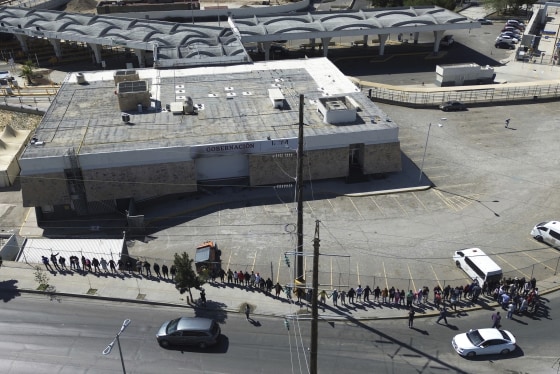Rubbelsy Pérez Rodríguez remembers the 2023 fire at the Ciudad Juárez immigration center “every day,” he said, including every time he runs out of breath, as he did that night, and especially at night, when he can still hear the sounds of despair.
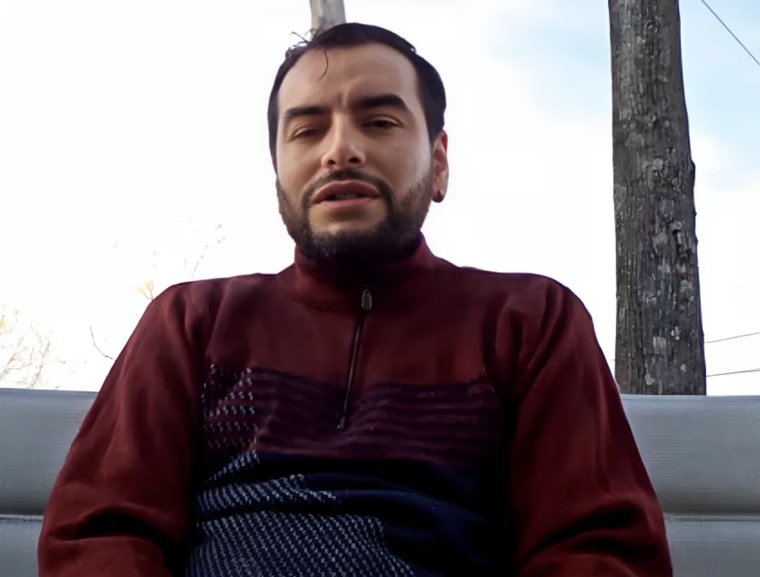
“Everyone was screaming. I swear I still remember those screams — they were screams of anguish,” the Guatemalan immigrant said in an interview with Noticias Telemundo from his home in Springfield, Tennessee. “No one knew what to do. Out of desperation, some started banging on the doors, but they were made of iron and couldn’t be opened,” said Pérez Rodríguez, 40.
On the night of March 27, 2023, at a facility located in the border town of Ciudad Juárez, 40 migrants from Guatemala, Venezuela, Colombia, Honduras and El Salvador were killed by asphyxiation as a result of a fire started by two Venezuelan migrants, according to investigations by Mexican authorities. Security videos leaked after the incident appeared to show smoke coming out of a cell and immigration agents fleeing without helping the locked migrants.
Pérez Rodríguez is one of the dozens injured during the fire.
"I remember the shortness of breath, the hot smoke — it’s all quite frustrating because you want to breathe but you can’t," Pérez Rodríguez said. "My entire airway was burned, and I had two injuries to my right lung," he said, noting that he suffers the consequences of these injuries on a daily basis.
Last week, on the two-year anniversary of the fire, families of the victims denounced what they said was institutional neglect and prevailing impunity around the case. They noted that Francisco Garduño, who heads the National Migration Institute (INM) that ran the center, remains in his post.
"It makes you desperate and it's frustrating not to find justice when the rights of a human being have clearly been violated. All we can do is continue fighting for our family,” the family members said in a statement shared by the Foundation for Justice.
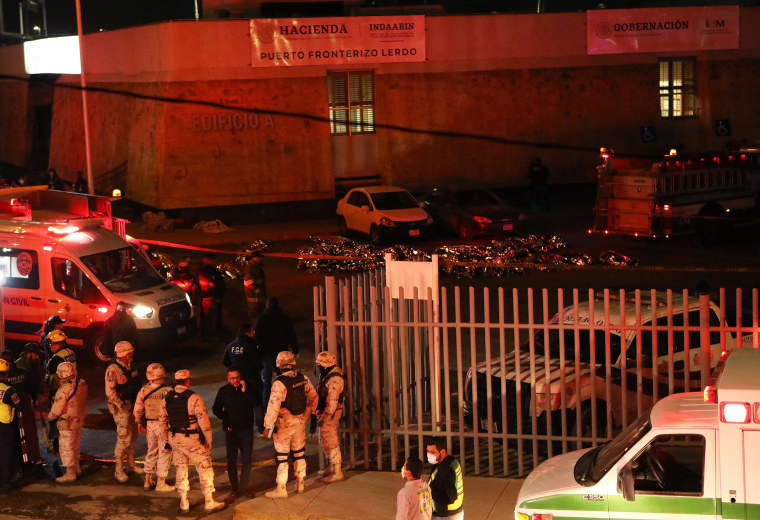
Groups representing the families as well as the relatives say that none of the criminal cases against 11 defendants, including eight INM officials, have gone to trial.
According to a report by the Juárez-based investigative newspaper La Verdad, only three of the eight officials charged with the deaths of the migrants face imprisonment; three of them were released on bail and another is on the loose.
“In this country, more than 90 out of every 100 crimes go unpunished. And if this is true for Mexican citizens, it is evidently even more serious for migrant populations in Mexico,” Javier Urbano, professor of International Studies at the Universidad Iberoamericana, said in an interview with Noticias Telemundo.
The detention center closed after the fire; last May, Garduño announced that it would be replaced by a new building several miles away, near the Ysleta-Zaragoza International Bridge. The new center would be overseen by Mexico’s National Human Rights Commission (CNDH).
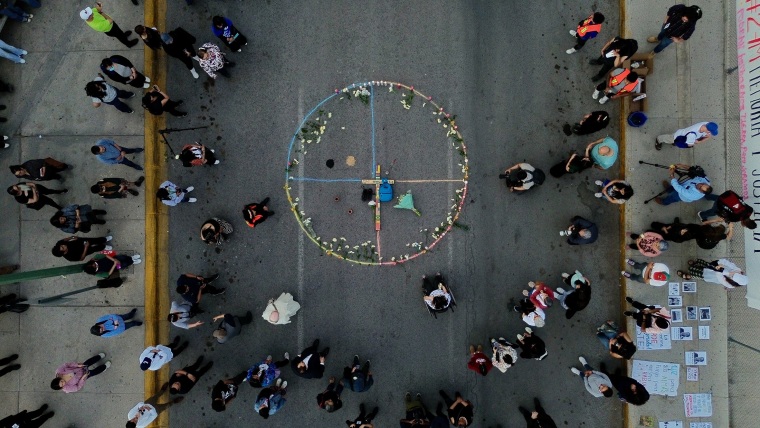
“When they set fire to the mattress, it was hot, we had no ventilation or fire protection system, and there were no fire extinguishers. We had run out of drinking water, and there was practically no water in the bathrooms,” Pérez Rodríguez said of the conditions at the facility on the day of the fire.
In 2024, a cross-border investigative report by El Paso Matters, La Verdad and Lighthouse Reports revealed new details highlighting a series of lapses in the detention center's security protocols. “Migrants detained by the National Migration Institute (INM) lacked food and water, were held in an overcrowded cell and were verbally abused and threatened with deportation,” the report stated.
The detention center was designed to accommodate a total of 60 people, but on the day of the fire it had a total of 90, including seven employees.
Authorities said the migrants were there because they had been returned from the U.S. to Mexico under Title 42, a public health measure initially implemented by the first Trump administration during the pandemic to immediately expel migrants back to Mexico until their immigration status was resolved.
A call for changes
Other fatal incidents involving migrants have taken place in Mexico in recent years, and they've been attributed to organized crime. In January 2021, 19 migrants were found burned in two vans in the municipality of Camargo, Tamaulipas. In February 2015, the remains of 16 migrants from Honduras and Guatemala were found in Güémez, another town in Tamaulipas, and the same state also saw the massacre of 72 migrants in 2010.
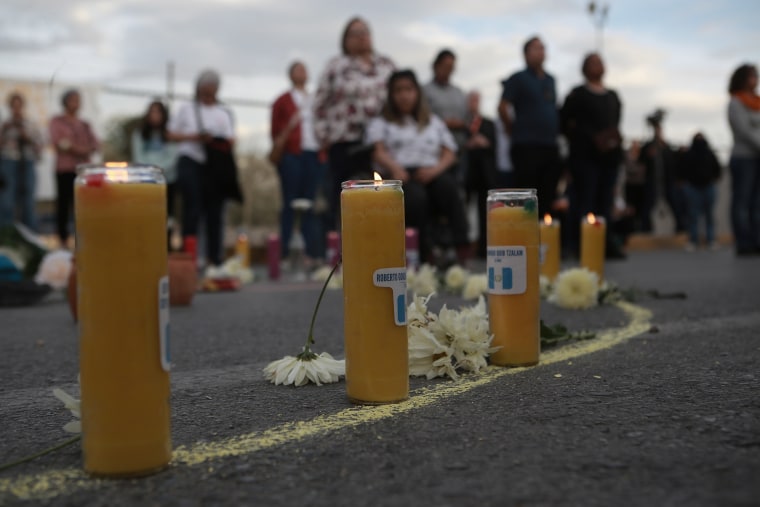
But the fire in Ciudad Juárez took place while migrants were in Mexican state custody. “It’s known who the culprits are, they’re the people who were in charge of that immigration station,” said Pérez Rodríguez.
Even though the slow pace of judicial processes in the country and the lack of convictions continue to be a source of complaints, the fire was the starting point for promoting changes in Mexico's immigration centers or stations, according to Eunice Rendón, a coordinator for Agenda Migrante, (Migrant Agenda), a coalition of migrant advocacy groups in Mexico and the U.S.
“The National Migration Institute opened the door for us to work with them, and in two years we replaced 15 Mexican government immigration detention centers,” Rendón said. “We realized that this immigration detention center model was conceived 20 years ago as a prisonlike model, and that’s part of the problem."
But Pérez Rodríguez said he is frustrated over the lack of indictments and convictions.
Last January, Garduño succeeded in obtaining an 18-month freeze on the legal proceedings against him, Pérez Rodríguez noted.
“The person in charge of immigration is Garduño. He’s the one in charge of giving the orders, and he should be involved in the case, but he’s practically unindicted,” he said.
Noticias Telemundo contacted the Mexican Attorney General’s Office and the National Institute of Migration for comment on the allegations made by survivors and advocacy organizations, but received no response.
However, the INM published an interview with Garduño on social media last week announcing he would issue a public apology on April 16 in Ciudad Juárez. Garduño so far has denied allegations of mistreatment of the victims and their families, and emphasized that the Mexican government has provided nearly 240 million pesos (about $12 million) or 3.5 million pesos (about $171,600) to those who were directly or indirectly affected by the fire.
Pérez Rodríguez, who spent more than a year recovering, said he did receive this compensation it's not enough.
"There are health issues right now, and that practically doesn’t make up for it. I’m still seeing the doctor, still paying for my medications and everything,” he said.
Despite the daily health issues, Pérez Rodríguez lit up when he talked about his experiences living in the U.S. with his wife and three children, while he works through his asylum case.
“The truth is, we have a better life in the U.S. It’s a wonderful experience, having the whole family here,” he said. “Here, the children go to school happily, they laugh and play, they’re healthier and everything. It’s honestly the best thing that could have happened to me."
While his life in the country has meant a new beginning for his family, he's concerned about the current immigration measures and increased deportations.
“It’s a little sad, and sometimes we get discouraged by the situation we’re going through, but I think we should entrust ourselves to God and try to do the best we can — our dream is to live better, work, and continue to make this country even greater," he said.
An earlier version of this story was first published in Noticias Telemundo.
